Living as an Ahmadi in Pakistan: ‘Our home became an environment of fear’
When they’re found out, shops refuse to serve them, estate agents won’t rent to them, and their neighbours stage a ‘social boycott’. Raza Hamdani talks to Shafiq Ahmed about what life is like for Ahmadi Muslims in Islamabad

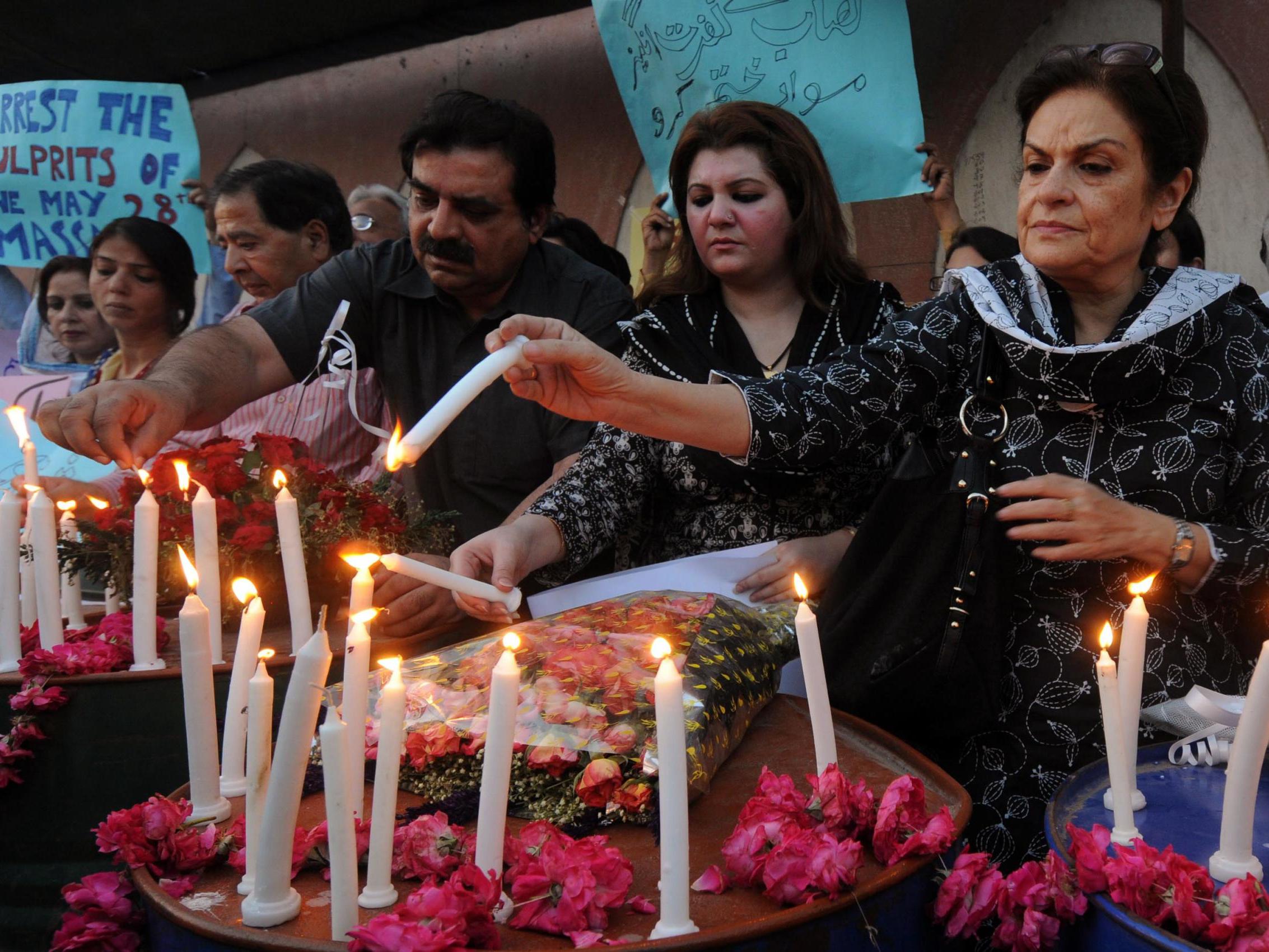
I am waiting for 30-year-old Shafiq Ahmed* outside a cafe in Islamabad. He was very clear that this meeting should be in a busy public place. I get a table in a corner so we are away from the noisy environment.
After shaking hands, Ahmed looks around and, after a brief pause, says: “I think we should sit at that table in the middle.” I follow him and as he sits down, despite the cold weather, takes off his jacket and hangs it on the back of his chair. “I moved to Islamabad along with my family in the hope that we may not be targeted because of our beliefs in the federal capital. Alas, how wrong was I.”
Ahmed and his family are Ahmadi, part of a religious movement that considers itself to be Muslim and follows the teachings of the Quran. The Ahmadiyya believe that Ghulam Ahmad was the Mahdi (a prophet who, according to the hadith, would appear at the time of the second coming of Jesus Christ, and fill the world with justice and equity prior to the Day of Judgement), while Sunni and Shia Muslims believe the Prophet Muhammad was the last of the prophets. Many consider Ahmadis to be heretics.
Ahmed moved to Islamabad from Abbottabad around a decade ago, renting out part of a house in the suburbs. “In the beginning my decision to move to Islamabad turned out to be a right decision. I started my job and we were living a peaceful comfortable life.” But peace of mind and comfort were short-lived for Ahmed and his family. A year later, people started to talk, and prying eyes started to follow his wife and mother. The neighbourhood had found out they were Ahmadis.
But one incident changed everything. “My father woke up for an early morning walk and the gate wouldn’t open easily. So he pushed the gate harder and once he stepped out he looked at what was stopping the gate from opening and he saw stickers pasted on our gate. These stickers had anti-Ahmadi statements on them.”
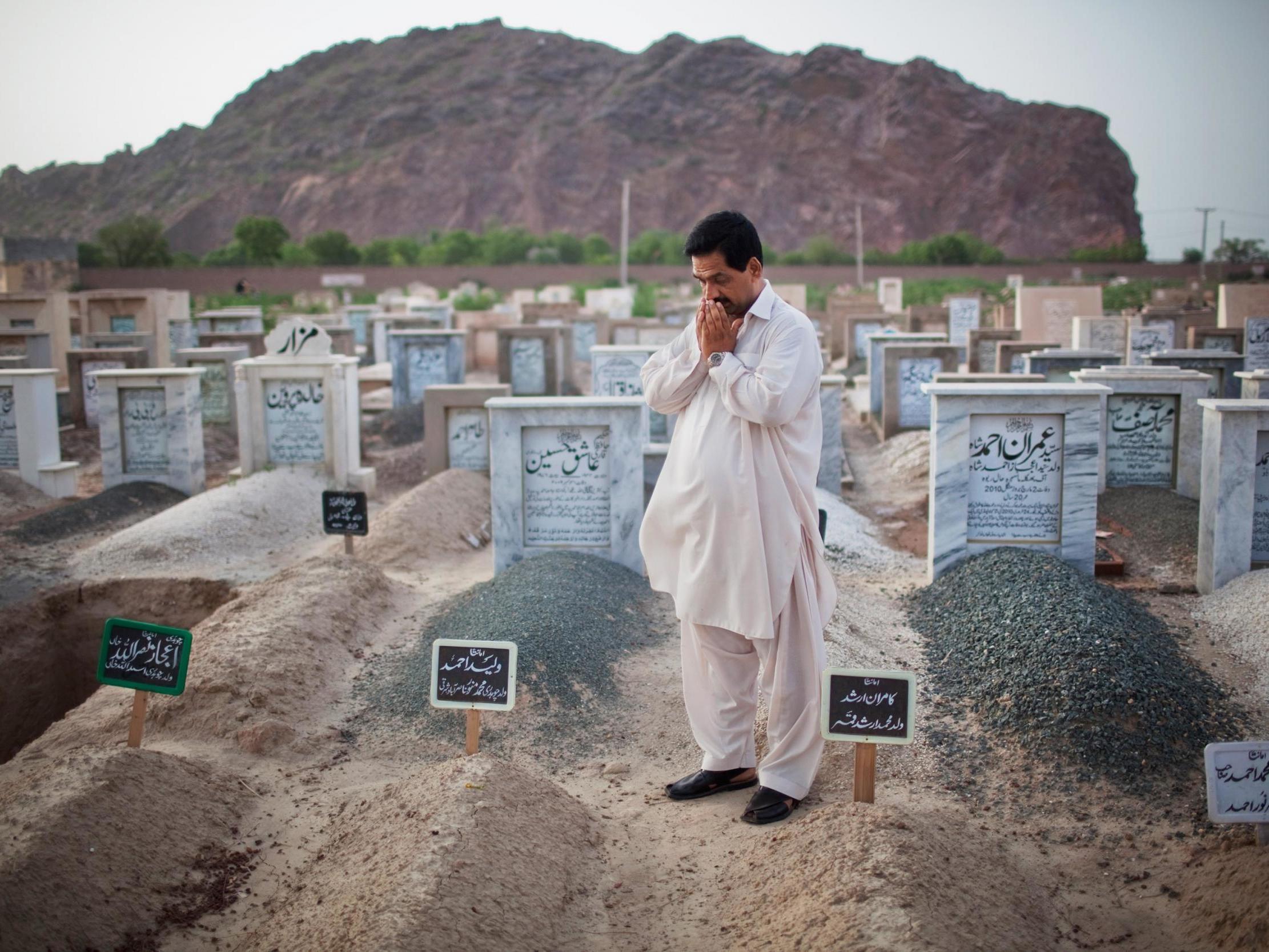
The messages encouraged the killing of Ahmadis, told shopkeepers not to do business with them and houseowners not to rent to them. “I took off the stickers, but an environment of fear was very evident in our household. On the advice of friends, I went to the local police station to lodge a complaint, but was told by the police, ‘Brother, what are you doing? Why are you after your life?’ and I walked out of the police station.”
He says they had no option but to move to a different area. How did their neighbours uncover their secret? “Ahmadi females’ burqa or head-to-toe veil is different from others. I am sure that was the reason neighbours came to know about us,” Ahmed says. “And that was why, when we moved to another house, I asked my mother and wife not to wear [their] burqas.”
In the middle of recalling his tale, Ahmed’s phone rings. “Dad, yes, I am fine and with my friend at a cafe. I will be home in another hour and a half.”
Afterwards, he asks me how many times my parents called me at 7pm to ask where I am. “My father is worried about my safety and I always give him a definite time by which I will be home.” He looks around the almost packed cafe and says: “Ask them if their parents called them to enquire about their safety. This happens only with Ahmadis in Pakistan.”
When the family were looking for a new home, they decided to tell the landlords about their beliefs beforehand. They looked at three houses; two refused to rent to them but the third agreed. “He gave the house to us because for him our belief was between us and God, and he was no one to pass judgment.
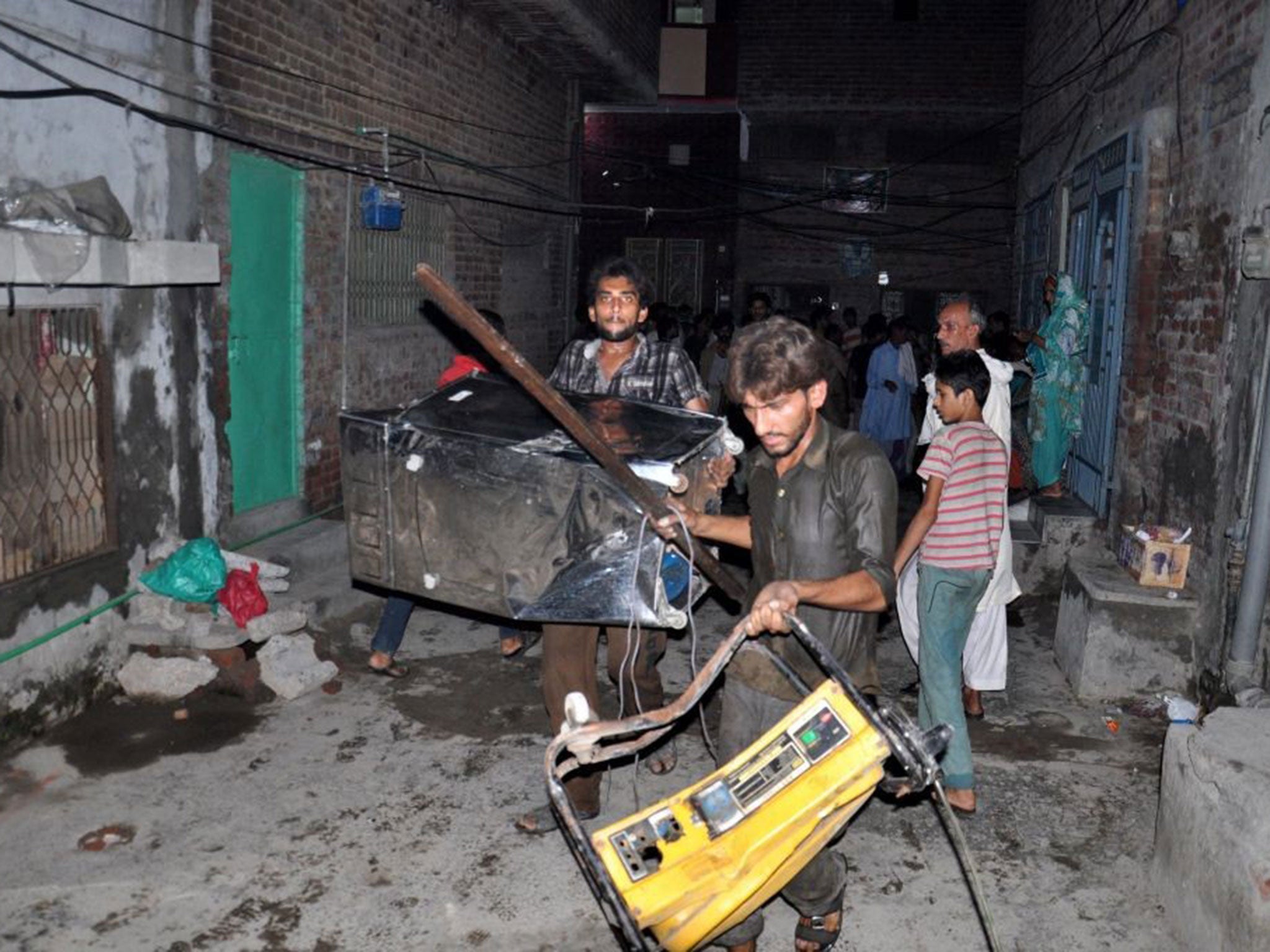
“But social boycott is not only a house owner refusing to rent out the house. Social boycott is more about neighbours.” They stayed in the house for little over a year before the neighbours found out they were Ahmadi. Although there were no threats or stickers this time, neighbours started talking about a social boycott.
“Once again, we packed and moved to another house. But history repeated itself. This time around, besides neighbours’ attitude, the shopkeepers refused to sell goods to us,” he says. “Do you realise how infuriating and degrading it is when you go to a shop and in front of many other customers, you ask for eggs or bread and despite eggs or bread being right in front of your eyes, the shopkeeper says he doesn’t have them? So I started to do daily shopping on my way back from work.”
From time to time Ahmed turns around to take spectacles, a pen or medicine out of his jacket pockets. I quickly realise this is a pretext for checking around the room. He says his elders have advised him to move to a “posher” area of Islamabad where his family would not face such stigma. “Although I could not afford rent, I decided to move to proper Islamabad for peace of mind for myself and family. More than half of my salary goes on rent, but I am happy that at least neighbours don’t pry and the shopkeepers sell us goods.”
He pauses. “Like all of you, we also believe that life and death are in the hands of Allah. But tell me, Mr Hamdani, if stickers about killing and social boycott are pasted outside your house, what would be your mental state? Would you be able to focus on your work? Wouldn’t you ask that as a citizen of this country, I also have rights? If you go to a shop and a shopkeeper refuses to sell you goods, how would you feel? Maybe, Mr Hamdani, you would argue with the shopkeeper, but as an Ahmadi, I do not have and I cannot take that liberty.”
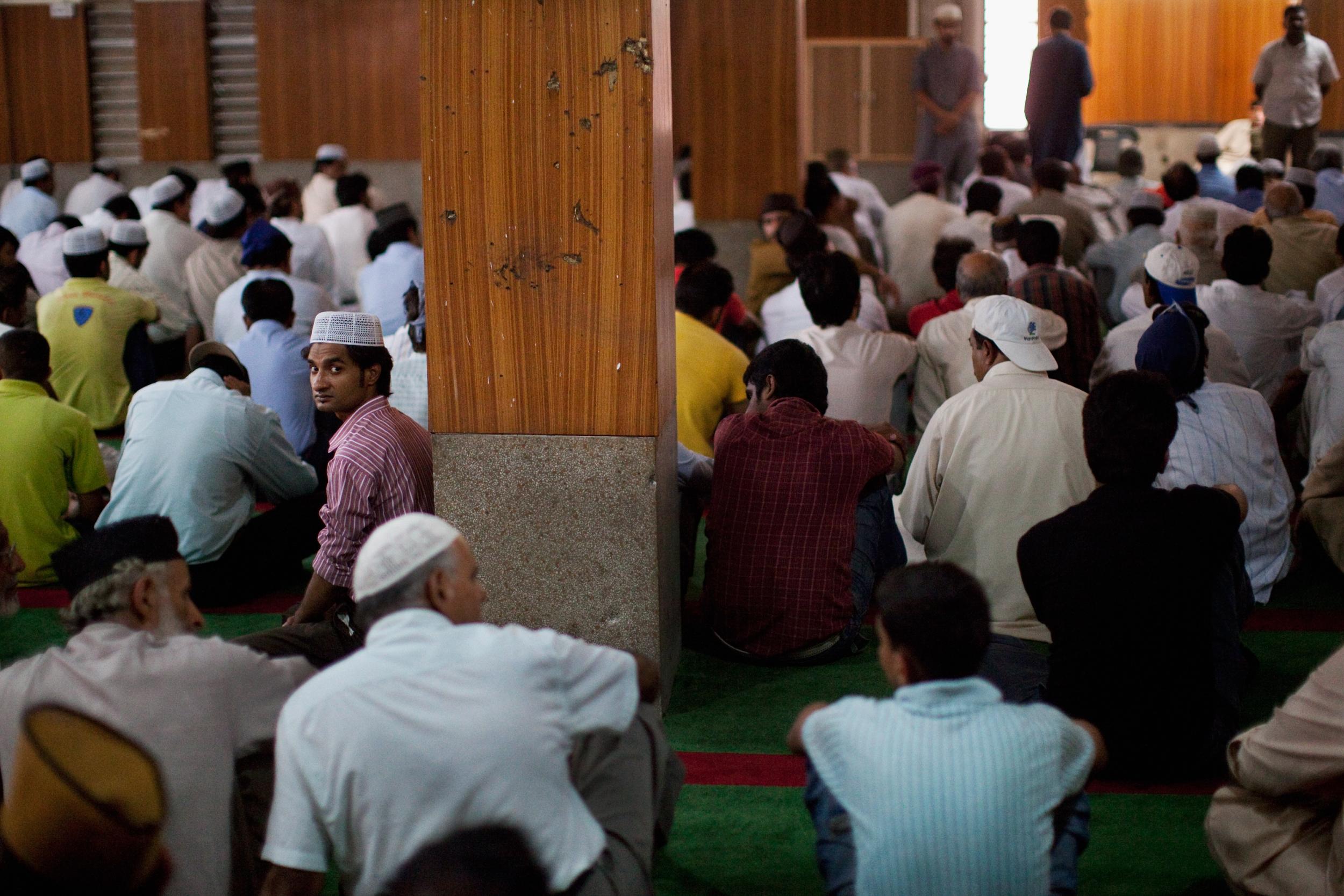
When I investigate how difficult it is for an Ahmadi to rent in Islamabad, the estate agents are upfront with me. One, Chaudhry Karamat, tells me: “If your friend is looking for a house in middle or lower middle-class area, then he should not tell the house owner about his belief and he should have no problem renting the house. If he wants to disclose, then he should be looking for a house in posh sectors of Islamabad.”
The refusal to do business with Ahmadis is not confined to individuals. In Lahore, one of the largest and most famous electronic markets, Hafeez Centre, is an example of the governments’ failure to protect the basic rights of Ahmadis and to stop incitement towards them. Stickers saying “We do not do business with Ahmadis and Ahmadis are not allowed to enter” are plastered prominently on the door of almost every shop.
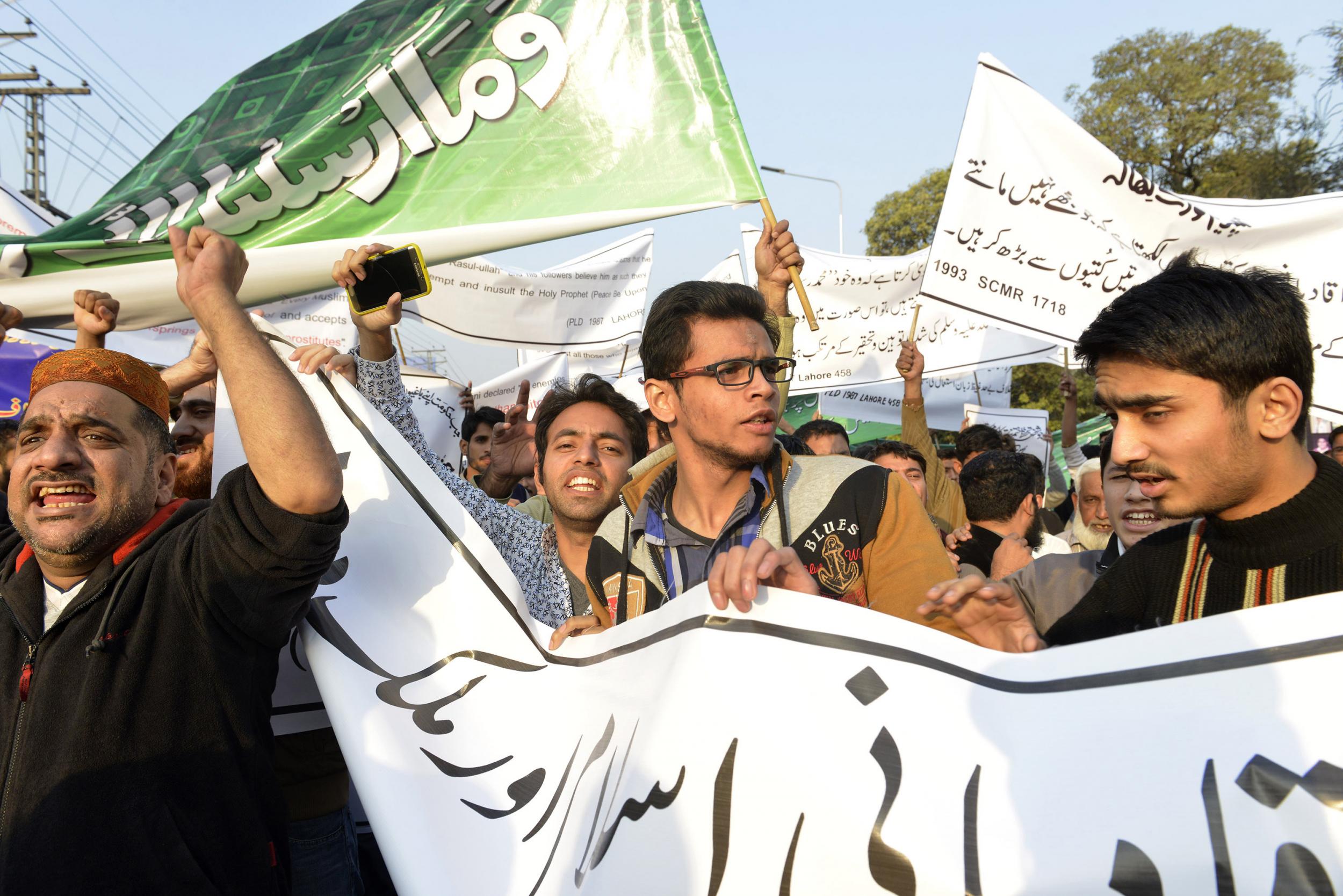
It is the same centre where in 2015 police arrested one shopkeeper and removed anti-Ahmadi stickers from the shops, although they resurfaced soon after. Such stickers are also banned and punishable under the National Action Plan, which was set up after a terrorist attack on a school in Peshawar in which over 130 students were killed.
At the centre, I ask Zeeshan, a shopkeeper, about the sticker and if anyone has argued about it. He says: “I have been working here for the last four years and no one has argued over it. Customers come, see the sticker and move on. Nobody has ever asked us why we have this sticker.” When asked whether non-Ahmadis might also take offence and not do business, he very calmly replies, “God is great and the provider”.
The shop owners talk about expanding these sticker campaigns to other shopping centres in Lahore.
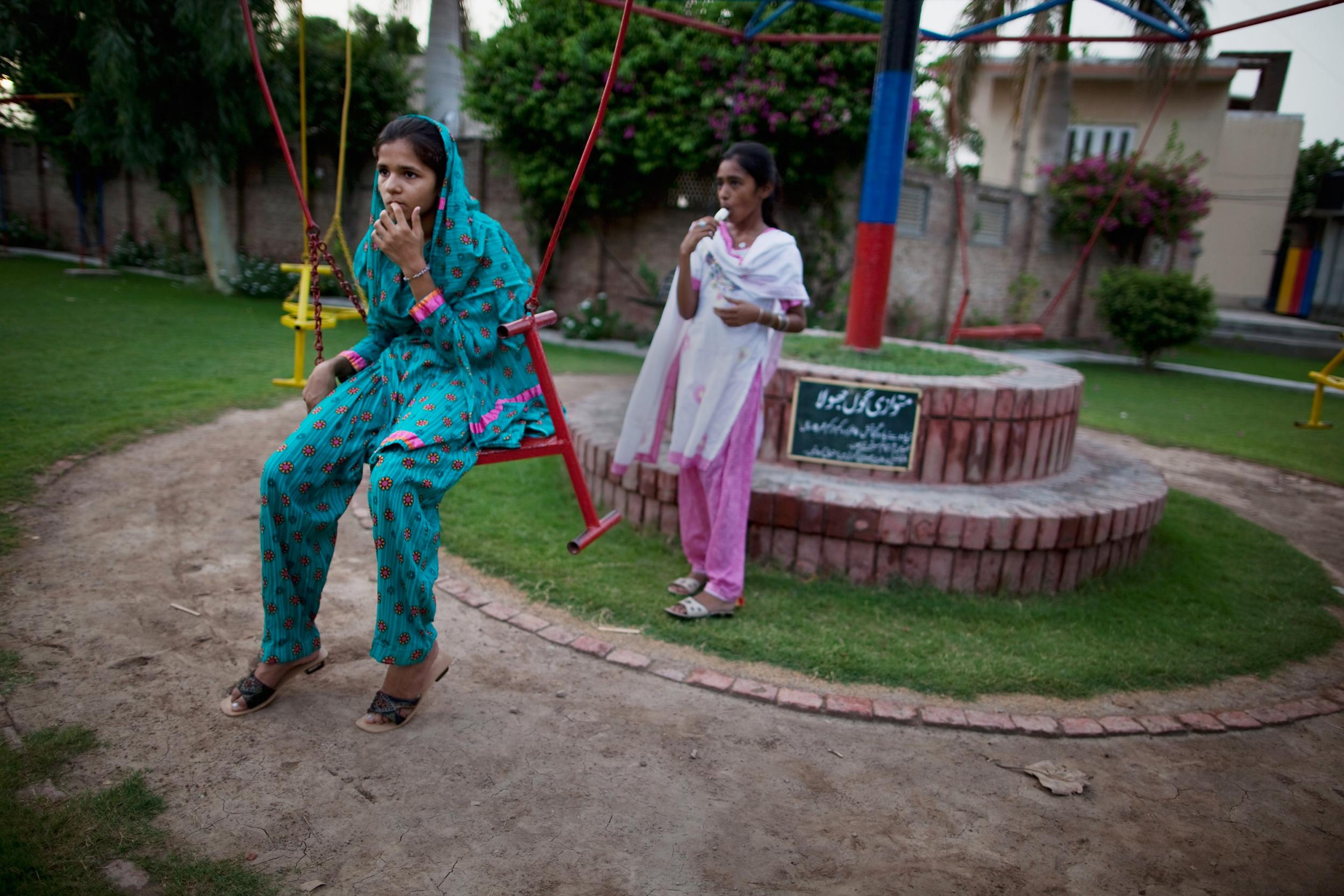
Another, Sheikh Mudassir, tells me: “Two young boys came to my shop and checked some phones. Although these phones were brand new, they did not work. After the boys left, another shopkeeper came to me and said there was nothing wrong with the phones and they did not work because these boys were Ahmadis. When I tested these phones again they worked. Now tell me, why would I do business with Ahmadis?”
True or not, the stickers are a clear violation of the National Action Plan. One of the 20 points of the strategy, passed by the government in 2015, says: “Strict action against the literature, newspapers and magazines promoting hatred, extremism, sectarianism and intolerance.”
Before this, hate and antagonism against the Ahmadi community in Pakistan had been essentially state-sanctioned in 1974 under then prime minister Zulfikar Ali Bhutto, when the group was officially declared as non-Muslim. The screws were further tightened by Ordinance XX of the Pakistan Penal Code in 1984 during General Zial-ul-Haq’s time, which criminalised Ahmadis “posing as Muslims”.
1974
The year Ahmadis were officially declared as non-Muslims by Pakistan’s constitution
This brought in Articles 298b and 298c, under which Ahmadis are prevented by law from calling themselves Muslims, either directly or indirectly; referring to their faith as Islam; preaching or propagating their religious beliefs; inviting others to accept Ahmadiyya teachings by words, either written or spoken, or by visible representations; insulting the religious feelings of Muslims; calling their places of worship “mosques” or “masjid”; worshipping in non-Ahmadi mosques or public prayer rooms; performing the Muslim call to prayer; using the traditional Islamic greeting in public; publicly quoting from the Quran; or displaying the basic affirmation of the Muslim faith.
The punishment for violation of these provisions is imprisonment for up to three years and a fine. The entire population of Rabwah, Ahmadi headquarters in Pakistan, was charged under section 298-C on 15 December 1989, and again on 8 June 2008.
Mob attacks, targeted killings and desecration of Ahmadi mosques have been happening for decades. Successive governments after Gen Zia-ul-Haq’s rule have failed to give relief to the community. Every year, scores of Ahmadis are killed in target killings, and many are arrested for posing as Muslims. Since 1984, 39 bodies of Ahmadis have been exhumed after being buried in a Muslim graveyard, and another 69 were not allowed to be buried in common cemetery.
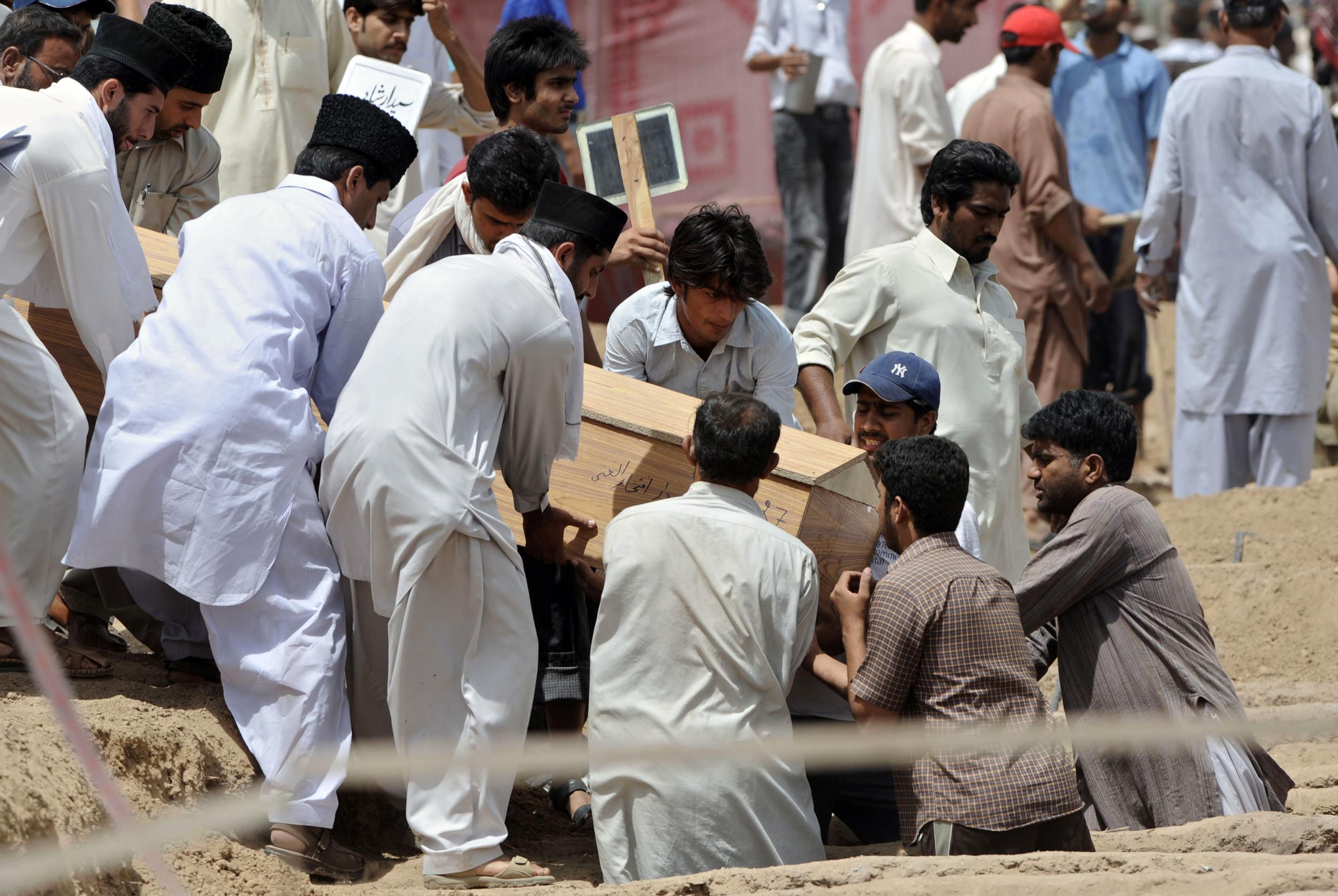
The governments, including that of current prime minister Imran Khan, whose slogan is “Naya Pakistan” (New Pakistan), have not only failed, but their failures further emboldened the religious parties fanning anti-Ahmadi sentiments.
Khan, upon coming to power, appointed economist Atif Mian to the 18-member Economic Advisory Council (EAC), the body that advises the government on economic policy. Soon after, main opposition party the Pakistan Muslim League submitted a notice in the senate against the appointment of Mian as he was Ahmadi.

The government initially defended the move, saying Pakistan “belongs to minorities as much as it belongs to the majority” and that the government would not “bow down to extremists”. But soon after bowed down and asked Mian to resign.
Public space for the Ahmadiyya community will continue to narrow if one pillar of the state, the executive, does not stand for the rights of minorities as enshrined in the constitution of Pakistan, while the other pillar, the legislature, quivers under pressure from the religious parties and becomes part of the campaign against the persecuted Ahmadiyya community.
*Shafiq Ahmed is a pseudonym to protect his identity
Join our commenting forum
Join thought-provoking conversations, follow other Independent readers and see their replies
Comments
Bookmark popover
Removed from bookmarks